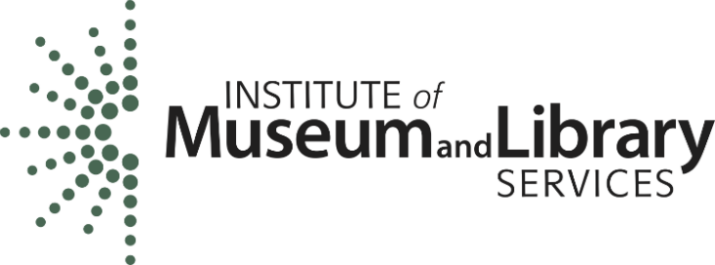Partnership Champions builds upon the National Center for Science and Civic Engagement (NCSCE) initiative SENCER-ISE (Science Education for New Civic Engagements and Responsibilities-Informal Science Education), which supports diverse cross-sector partnerships between places of informal learning (including science museums, science centers, nature centers, a zoo, and a national park) and higher education institutions that collaborate on civic engagement projects.
Following a competitive application review process, five cross-sector partnerships were selected to receive one-year subwarwards to explore best practices for science and civic engagement cross-sector partnerships and create collaborative projects. Each sub-award provides $10,000 for awardees to begin the process of planning and establishing an ongoing collaboration. As part of the award, the partners will participate in an eMentorship consultation (via online video conference services) with an experienced SENCER-ISE partner on selected topics, such as project planning, institutionalizing the partnership, identifying audience outcomes to guide evaluation, and navigating conflicting schedules. Each collaboration partnership was matched with their own eMentor. These five eMentors were selected from SENCER-ISE partners who previously received sub-awards and created cross-sector partnerships, thus expanding the SENCER-ISE network of collaboration.
Awardees will also have opportunities to interact with members of other partnerships and the larger SENCER network of faculty and administrators. Information about participating partners and mentors is listed below.
[bctt tweet=”NCSCE Launches New Partnership Champions Project to Expand Informal-Formal Collaboration @US_IMLS” username=”NCSCE”]Eastern Michigan University & the Ann Arbor Hands-On Museum
Amy Flanagan, Professor of Chemistry at Eastern Michigan University, and Nichole Wright, the Public Programs and Volunteer Manager at the Ann Arbor Hands-On Museum, are working to develop authentic, relevant, and engaging STEM activities geared toward elementary-aged children and their families. Their eMentor Karen Tingley is the Director of Education at the Wildlife Conservation Society. Previously, Karen worked with Amy Tuininga of Fordham University to create an urban ecology field research program called “Project TRUE (Teens Researching Urban Ecology),” which used a tiered-mentorship model to introduce New York City high school students to urban ecology and increase the rate of students pursuing STEM majors by facilitating collaborations with college mentors already in STEM disciplines.
Lincoln Memorial University & Abraham Lincoln Library and Museum
LaRoy Brandt, Assistant Professor of Biology at Lincoln Memorial Museum, and Thomas Mackie, the Director of the Abraham Lincoln Library and Museum, are collaborating to provide conservation biology students at Lincoln Memorial University an opportunity to gain a deeper understanding of current and historical human and nature interactions and to help educate others through the development of interpretive programs and environmental research projects while serving as conservation ambassadors. Their eMentor is Charlie Walter of the Sue and Frank Mayborn Natural Science and Cultural History Museum Complex at Baylor University. Previously, Charlie worked with the New Mexico Museum of Natural History and collaborated on the project, “New Mexico Informal Science/Current Research Network.” The network brought together informal science education institutions (NM ISENet) and university-based researchers (NM EPSCoR) to build capacity for enhanced collaboration to engage learners of all ages in STEM issues related to water and energy.
Rider University & Stony Brook Millstone Watershed Association
Kathy Browne, Associate Professor of Geological, Environmental and Marine Sciences at Rider University, and Jeff Hoagland, Education Director at Stony Brook Millstone Watershed Association, are collaborating with K-12 teachers to create civic-issue focused middle and high school curricula. Professionals from Stony Brook Millstone Watershed Association and Great Swamp Watershed Association are working with a teacher from New Brunswick Public Schools and the School District of the Chathams, respectively. Together they are designing lessons aligned with the Next Generation Science Standards during Fall 2016 into Spring 2017. Their eMentor, Michelle Kortenaar, is the Director of Programs at the Sciencenter. In 2015, Michelle worked with Tamar Kushnir at Cornell University to create the program, “Science from the Start: Engaging Researchers, Undergraduates and a Science Museum to Reach Early Learners and Set the Stage for STEM Learning.” The program created tools that helped parents navigate the museum’s exhibits using research-based techniques to engage their children.
Towson University & The National Aquarium
Sarah Haines, Professor of Biological Science at Towson University, and Joe Haber, Director of Education at the National Aquarium, are working together on a program called “TEAB: Teaching Environmental Awareness in Baltimore.” The program will bring pre-service teachers from Towson University to the National Aquarium to conduct educational programming focused on watershed education for urban youth. Their eMentor is Amy Tuininga, the Director of PSEG Institute for Sustainability Studies, Montclair State University. Previously, Amy worked with Karen Tingley (see above) of the Wildlife Conservation Society on Project TRUE.
Wheelock College & Charles River Watershed Association
Lisa Lobel, Assistant Professor of Mathematics and Science at Wheelock College, is partnering with Elisabeth Cianciola, Aquatic Scientist at the Charles River Watershed Association, to integrate classroom work with citizen science field research in urban stream health through the project “A Citizen Science and College Student Partnership to Assess Stream Health in the Charles River Watershed.” The goal is to partner college students at Wheelock College with scientists and citizen scientists working with the Charles River Watershed Association (CRWA) in the assessment of stream health in the Charles River Watershed. Their eMentor is Nellie Tsipoura, Senior Research Scientist at the New Jersey Audubon Society. Previously, Nellie partnered with Jay Kelly of Raritan Valley Community College on a project called, “Integrating Citizen Science and Community College Student Efforts in Assessing Forest Health in Central New Jersey.” The project involved community college students at Raritan Valley Community College (RVCC) and citizen scientists at NJ Audubon (NJA) in the assessment of forest health in central New Jersey, documenting the extent of deer browse and its effects on forest structure, invasive plant species, and avian and plant diversity.

